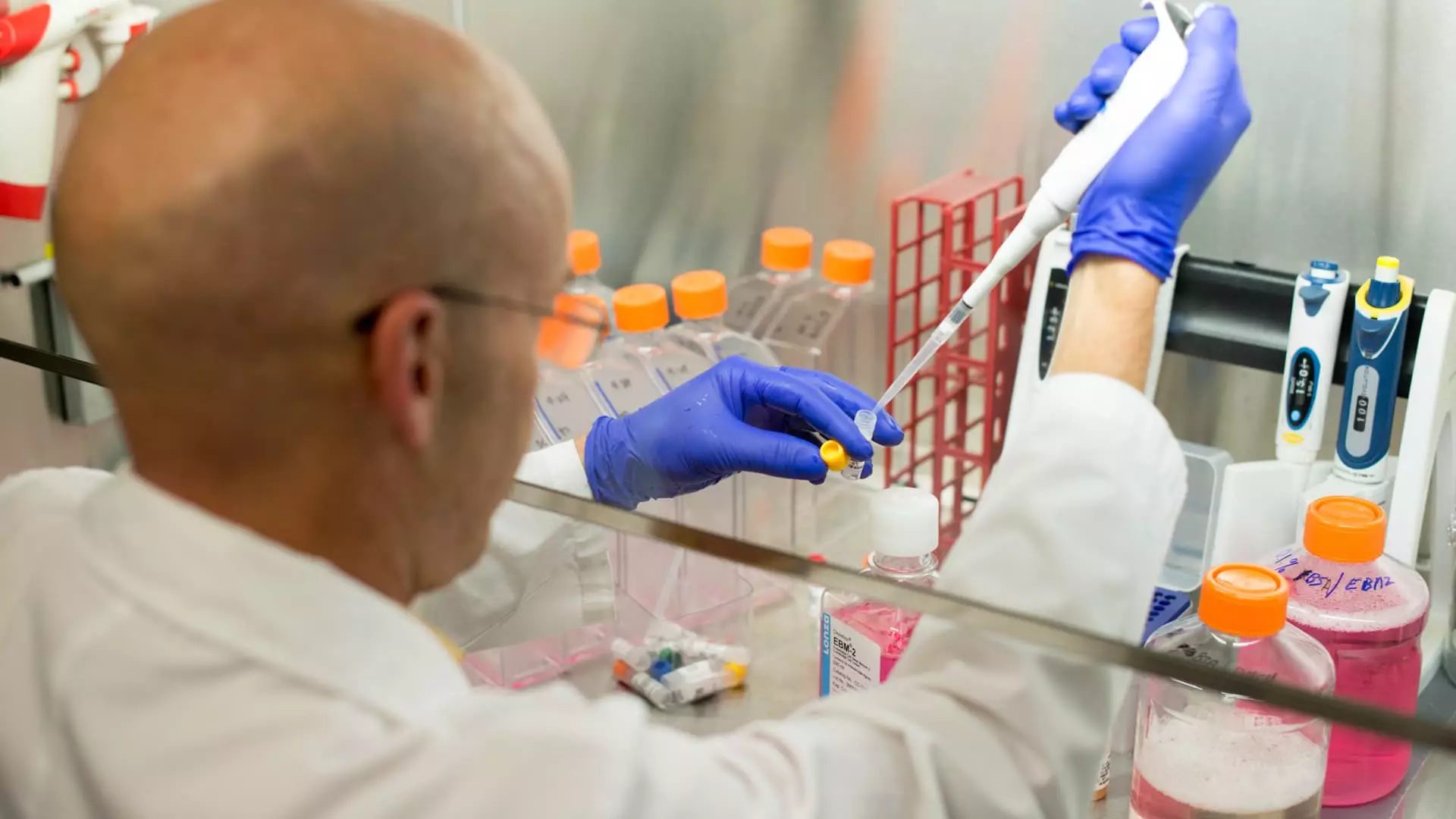Recursion Pharmaceuticals has recently made significant strides in drug discovery, showcasing the power of artificial intelligence (AI) in an industry traditionally governed by lengthy trial-and-error processes. The company’s groundbreaking approach has allowed it to identify a biological target for treating solid tumors and lymphoma, advancing to regulatory approval for clinical trials in a remarkably short span of time. In an era where expedited drug development is paramount, this accomplishment could signal a pivotal moment for not just Recursion but the wider techbio sector as well.
On Wednesday, Recursion announced that the FDA had cleared its investigational new drug application for REC-1245, an experimental drug candidate now poised to enter phase 1/2 clinical trials. The company managed to achieve this milestone in less than 18 months, an impressive feat given the challenges intrinsic to drug development. According to CEO Chris Gibson, this accomplishment reflects not only the potential of the company but also the broader capabilities of AI-driven methodologies in biopharmaceuticals. Such advancements could pave the way for more efficient treatments, significantly benefitting patients.
The potential market for REC-1245 is estimated to encompass over 100,000 patients in the U.S. and European Union, indicating a robust opportunity for Recursion. The drug specifically targets RBM39, a biological marker that has been likened to CDK12—another important, albeit elusive, target for advanced hormone receptor-positive cancers, including ovarian, prostate, breast, and pancreatic malignancies. This targeted approach could result in meaningful therapeutic options for patients who currently face grim prognoses.
What sets Recursion apart is its application of AI to streamline drug discovery processes. Gibson likened their massive biological datasets to a “Google-search equivalent,” emphasizing how these tools enable the rapid identification of promising drug candidates. Such advancements are heralded as a beacon of hope within the healthcare industry, particularly for overcoming the inefficiencies that have plagued drug development for decades. The concept of AI systematically narrowing down viable treatment candidates holds the potential to not only speed up the process but also lower costs significantly.
Despite the promising developments, Recursion’s shares have experienced considerable declines, dropping 38% in 2024 and still languishing over 60% below their 52-week highs. The mixed investor sentiment reflects a broader skepticism about whether AI’s transformative potential in drug discovery can be realized. Recursion’s ongoing merger with Exscientia, another AI-focused drug discovery company, aims to consolidate data resources and enhance its portfolio further, instilling hope for future recovery of stock prices. The anticipated deal, planned to close early next year, could bolster investor confidence and potentially stabilize the company’s market performance.
While the majority of financial analysts have placed a “hold” rating on Recursion’s shares, a few remain bullish, recognizing the company’s innovative direction and the promise of REC-1245. The average price target set by analysts implies a potential return of 64%, suggesting that despite current market fluctuations, there’s optimism about the company’s long-term viability. This duality of measured skepticism paired with excitement reflects an ongoing narrative in the biotech arena, where innovation is often met with caution.
Recursion Pharmaceuticals stands at a crossroads of opportunity and challenge. With its pioneering efforts in AI-drug discovery, the company is not just altering the timeline for developing new cancer treatments but also redefining investor expectations in the techbio industry. As clinical trials for REC-1245 commence and the merger with Exscientia unfolds, the future could hold remarkable opportunities not only for Recursion but for patients awaiting innovative therapies in the oncology landscape. The successful integration of AI into drug discovery may very well be the key to unlocking faster, safer, and more effective medical interventions.

